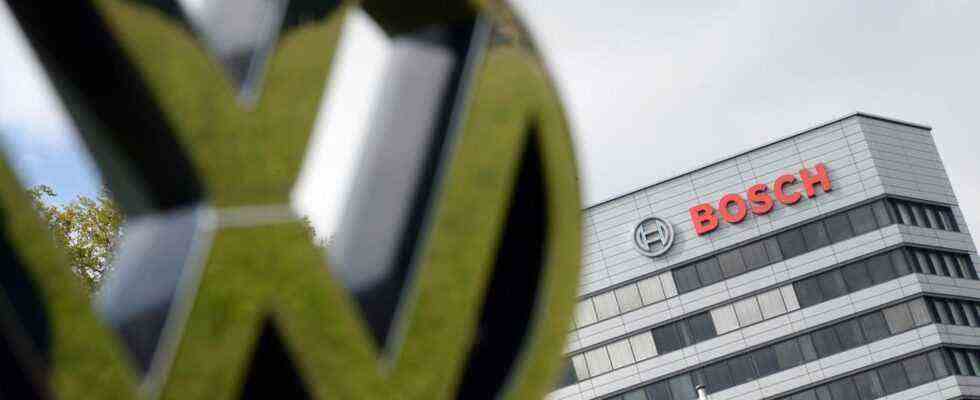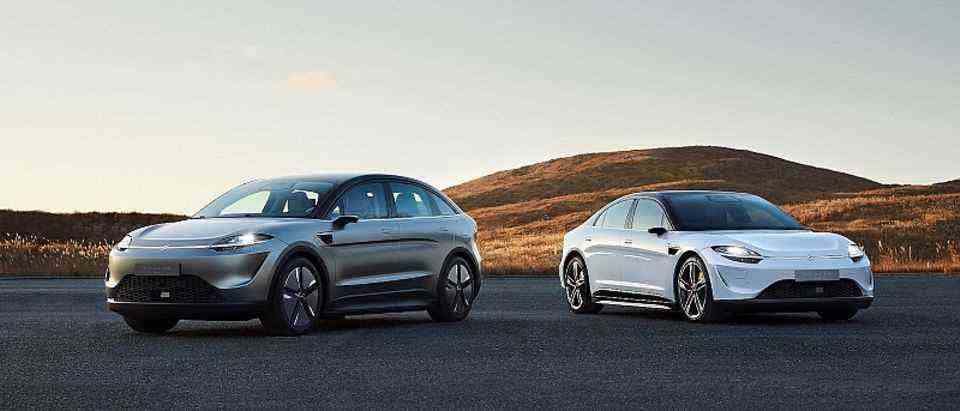electromobility
VW and Bosch launch joint project to build a “battery house”
VW and Bosch want to set up a joint venture to produce batteries for electric cars (symbolic photo)
© Franziska Kraufmann / Picture Alliance
VW and Bosch want to work together in battery production for electric cars in the future. To this end, the two companies have started a joint project. VW and Bosch could soon deliver joint factory equipment in Europe.
With a new project, VW and its major supplier Bosch want to bundle their expertise in the construction of electric cars and manufacturing technology for battery cells in Europe. This could become a joint venture to equip complete cell factories for the vehicle industry, as the partners explained on Tuesday. They want to prepare this by the end of the year. Lower Saxony’s Prime Minister and VW supervisor Stephan Weil also hopes that the federal government will be more involved in the competition for the locations.
Bosch and VW have already signed a letter of intent on their project. According to company circles, the cooperation is still at a very early stage. The goal of the largest European car manufacturer and the world’s largest car supplier is “cost and technology leadership in the industrialization of battery technology and series production of sustainable batteries”.
Enormous investments are required to set up cell factories and ramp up electromobility. Smaller or medium-sized companies might therefore have a need for total systems and related services such as setup and maintenance. The “battery house” project is initially to be located partly in Salzgitter and partly in Stuttgart-Feuerbach. A close proximity to the production sites is important because the distances are as short as possible. It is about the “entire spectrum of processes and components required for the large-scale production of battery cells and systems”.
VW wants to advance battery production in Europe
Volkswagen initially wants to build six of its own cell factories in Europe. In addition to Salzgitter, Skellefteå in northern Sweden is already set for it. A third location in Spain is considered to be agreed, provided that the policy there offers the appropriate conditions. In addition, possible candidates among regions in Eastern Europe are to be examined.
The Wolfsburg group has already founded its own European stock corporation (SE) for the battery business. Now it’s about finding additional investors. An IPO is also conceivable. VW Chief Technology Officer Thomas Schmall stated: “There is strong and growing demand for all aspects of battery production, including equipping new gigafactories. Volkswagen and Bosch are exploring opportunities to develop and shape this upcoming multi-billion dollar industry.” They are working on “building a fully localized European supply chain for e-mobility ‘made in Europe'”.
Head of government and member of the VW supervisory board calls for initiative from the federal government
Prime Minister Weil, who sits on the presidium of the VW supervisory board, once again called on the federal government to show initiative in the Europe-wide race for new locations for battery cell plants. In view of the funding programs in other countries, Berlin must follow suit. “My urgent advice to federal politicians is that Germany should keep up,” Weil told the “Frankfurter Allgemeine Zeitung” (Tuesday).
The SPD politician has been promoting another cell factory near the VW plant in East Friesland Emden for a long time. From Weil’s point of view, the North Sea coast would be suitable because production there could be supplied with green electricity from wind power: “A lot of renewable energy directly on site, that would go well with battery production, which is extremely
is energy-intensive.” The group had not yet announced any location decisions in its investment round at the beginning of December. According to reports, the area around the Saxon VW plants in Zwickau or Chemnitz could also have opportunities in Germany.
Weil recently told the German Press Agency that an additional factory in Germany must be internationally competitive. “This is where the federal government comes into play, because other countries in Europe are tempting with high subsidies that far exceed the possibilities of the state of Lower Saxony. Germany must ask itself whether it can afford that the most important component on the car no longer comes from Germany. Especially on the coast, the conditions with the wind energy on site can hardly be topped.”
In Kaiserslautern, Rhineland-Palatinate, the planned battery cell production of Opel with the parent company Stellantis and the French Total subsidiary Saft will be supported with 437 million euros in tax money. At the beginning of September, the then Federal Minister of Economics Peter Altmaier (CDU) and Prime Minister Malu Dreyer (SPD) handed over the funding decision.
Sources: DPA, VW press release


